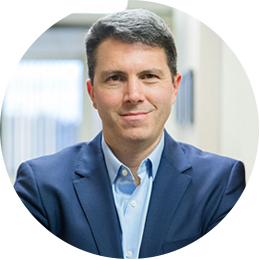There is a ton of technology available to lawyers, including estate and trust lawyers. Whether you are looking to increase efficiency in your workflow or just convenience in your daily work life, there is a tool for almost everything.
Systems to manage your calendar and integrate contacts are prolific and have evolved over nearly two decades. Same with document assembly software, it has been around forever although less than one-half of practitioners use it. Managing accounting, time, and billing is made easier and easier year after year.
But with so many options comes the need to choose and pitfalls abound. And of course, all technology is not right for everyone. You may have manual processes that work just fine for you, and adopting technology just for the sake of change can be a big mistake.
Here are a few recommendations from me, an estate lawyer with over 20 years of experience who has tried just about everything:
Hardware
Scanners
Having a desktop digital scanner at the ready is critical. Be sure your scanner is connected directly to your main workspaces. Fujitsu scanners are fantastic — the one I have now has been running smoothly for over 10 years.
Voip Phones
Be sure you have a Voip phone system. We like Allworx equipment. For Voip service try 8×8 and Corvum. There are countless features. Conference calling is obviously important and you need to be sure to have HD Call Quality.
If you don’t have a full-time secretary or receptionist, check out Virtual Receptionists provided by Lex Reception and Back Office Betties.
File Sharing and Document Storage
Calendaring Appointments
There are numerous applications that enable your clients to book an appointment with you without all the fuss and back and forth. We use Calendly. Calendly has a great user interface and will sync with Outlook and Google Calendar seamlessly. We’ve read and heard good things about Google Calendar.
Video Conferencing
Zoom is the market leader and has the advantage that most clients will be comfortable using it. Skype for business is also solid, as is one of the earliest players, GoToMeeting.
I view video conferencing, which I do all the time, as a supplemental tool for convenience sake. Always offer it but remember the relationship you are establishing with your clients is very personal and the subject matter is highly private. So when at all possible, meet in person.
Document Assembly
There are a number of software applications to help you assemble and prepare estate planning documents. The most popular software applications are Wealth Docx, Interactive Legal, and Fore!Trust. We list those in order of sophistication.
You can also customize your own forms using Hotdocs. They have a number of document assembly solutions, but you’ll likely need help from a consultant. We’ve used Affinity Consulting out of Columbus, Ohio. They have a group that works exclusively with estate lawyers.
Accounting and Billing
My preferred accounting software is Quickbooks (I’m a former CPA and I’ve tried them all). Not only can Quickbooks help you keep track of your expenses, reconcile your bank accounts, and generate financial statements, but it also has a time and billing feature. Try the online version if it fits your budget.
If your billing needs are not compatible with what Quickbooks offers, you might also look at Timeslips for a more comprehensive solution or Freshbooks for something a bit more simple.
Accepting Credit Cards
I ask clients to pay by check whenever possible since credit cards will cost you 2% – 3% of your gross revenue, that adds up. However, for smaller engagements I send clients a payment link; LawPay works well.
To make up for the credit card fees, you might consider charging a 3% convenience fee; you will be surprised to find that most clients don’t mind this additional fee.
Practice Management
There are sophisticated practice management applications available that have countless features, but I have found most of them are overkill for solo or small practice groups. I use Microsoft Outlook and find it more than sufficient to keep track of appointments and deadlines, as well as contacts and tasks.
I use Microsoft Outlook for Lawyers to electronically file and organize all my emails – a huge paper saver. Copernic is a great resource to easily search for files and emails – a big time saver.
I also use an application called Print Conductor that enables you to print a dozen or more documents at the same time. It is perfect for any estate planning process workflow.
Storing documents in the cloud has a lot of advantages, including automatic backups and allows you to access the documents from anywhere, so I strongly recommend it. I resisted the move for years, but I have found cloud storage dependable and effective. Plans offered by Microsoft 365 are solid.
If you are a practice group of several or more attorneys, having one system will make sense. We recommend Clio who is a market leader. They have an all-in-one product that we believe might be the best option out there.
Online Estate Plan Storage
After the estate plan is signed, you and your clients can store the documents online along with all the related information the fiduciaries will need using our online application called LawSafe®. LawSafe Systems is an online estate planning platform that I founded with a group of software engineers.
As a LawSafe® Professional, you can earn additional fees and stay in touch with your clients and their families for five to ten years after each engagement. The Professional LawSafe® subscription is free for you and client subscriptions can be purchased in 5 or 10-year packages for as little as $99 – $169 (that’s $16.90 – $19.90/year paid upfront).
We are the best and maybe even the only application on the market that suits estate lawyers. But in the interest of objectivity, you should check out Everplans which caters to financial planners. DocuBank is also for lawyers and has been around for two decades. It has a clever paper ID card that comes with it, but I’m not sure you’ll find nearly the functionality compared to LawSafe®.
Legal Research
LeimbergServices helps you to keep up with trends and new laws. Fastcase is another option for legal research. Your State’s CLE or State Bar may offer options for research and feedback we’ve received over the past 5 years indicates they are a no-brainer.
For the heaviest of legal research, you’ll need to consider lexisnexis, they are probably the most comprehensive research tool available although I’m not sure the typical estate lawyer needs it.
Summary
As you can see, there is a lot of technology to choose from. With free trials so prevalent it’s worth dipping your toe in and seeing if any of the suggested items work for you.
Practicing law keeps us busy and we are all overly-beholden to the billable hour, but you would be wise to give up an hour or two every month or so and be sure you are using all the tools available to you to modernize your practice, improve efficiencies and enhance your clients’ experience.
And be sure to check out LawSafe®, you and your estate planning clients will be glad you did.







